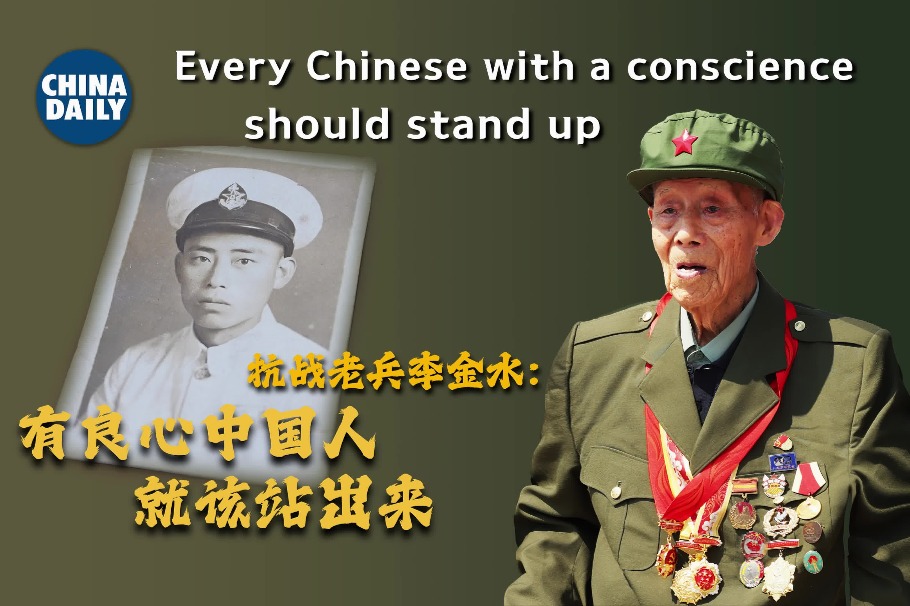Grounds for congeniality


Relations between the EU and China are complex and competitive but they need not be confrontational
Editor's notes: The world has undergone many changes and shocks in recent years. Enhanced dialogue between scholars from China and overseas is needed to build mutual understanding on many problems the world faces. For this purpose, China Watch Institute of China Daily and the National Institute for Global Strategy, Chinese Academy of Social Sciences, jointly present this special column: The Global Strategy Dialogue, in which experts from China and abroad will offer insightful views, analysis and fresh perspectives on long-term strategic issues of global importance.
Relations between China and Germany and China and the European Union have faced fresh challenges since the outbreak of the Russia-Ukraine conflict. The foreign policy of European countries, which have been directly hit by this crisis, has undergone major changes. The ties between the EU and Russia are currently clouded by an atmosphere of confrontation. How will China-EU relations develop in this context?
First of all, China-EU relations are not only more important but also more complex than ever. China and the EU have been each other's largest trading partners for a long time. From 2004 to 2019, the EU was China's largest trading partner. Since the beginning of 2020, China has surpassed the United States to become the EU's largest trading partner in goods. China and the EU are not only partners in trade and investment but also in global governance, especially in climate governance. The close cooperation between China and the EU was instrumental to the signing of the Paris Agreement. This cooperation was especially important after the US withdrew from the agreement during the Trump administration.
With the rising importance of China-EU relations, the complexity of this relationship has become more prominent. China-EU relations have become more competitive in recent years. As China's economic aggregate exceeds that of the 27 EU countries, the bloc increasingly sees China as a major economic and technological rival. In terms of the economy, the EU's discontent with China is mainly reflected in two aspects — the reciprocity of market access and the so-called fairness in competition. These are the two major areas in economy and trade in which the two sides are facing frictions.
Investments by Chinese companies in Europe have also encountered problems. Some European countries have adopted protectionist measures, such as restricting China's mergers and acquisitions on the grounds of national security or on the pretext that Chinese companies are obtaining state subsidies. Meanwhile, the EU has positioned China as a systemic rival, a major new development. A systemic rival is mostly about values, and differences in domestic governance models between the two sides.
Exchanges and dialogue between China and the EU have declined sharply since the start of the COVID-19 pandemic, with the gap in mutual perceptions being further widened. After the outbreak of the Russia-Ukraine conflict, some EU countries have taken a tougher stance toward China. The strengthening of the EU-US transatlantic alliance in the context of the conflict has had an influence over China-EU relations.
The interests of the European countries are not the same as those of the US. After the end of the Cold War, there was a gradual loosening of the alliance between European countries and the US. Former US president Barack Obama proposed the US "Pivot to Asia" and launched a "Rebalancing to the Asia-Pacific", which marked the beginning of a difference in the focus of the global strategies of the two sides of the Atlantic. The strategic focus of the US started to shift to the Asia-Pacific, while the strategic focus of European countries was still Europe. Former US president Donald Trump adopted an "America First" strategy for four years, during which period the diplomatic concepts and policies of the US and EU were very different. European countries began to realize that they cannot completely rely on the US and need to take their future into their own hands. Countries such as France have pushed for greater EU strategic autonomy.
In this context, the EU countries have been reluctant to take sides between China and the US. The EU does not want to side with the US despite the intensifying competition between Beijing and Washington. The US is a traditional military ally of Europe. China, as the world's second largest economy, is an important economic partner and market for European countries. European countries find it difficult to choose between China and the US.
After Joe Biden became US president, the foreign policy of the US has undergone major changes, and Washington has attached great importance to strengthening relations with its traditional European allies. But an important consideration of the Biden administration's approach is to unite Europe to respond to China's growing influence. Since 2021, the EU and the US have used two major mechanisms to strengthen policy coordination toward China, namely a high-level dialogue on China and the US-EU Trade and Technology Council. These two mechanisms have made it easier for the EU and the US to coordinate their China policies at the institutional level. After the outbreak of the Russia-Ukraine conflict, the EU has once again realized that NATO and the US are important to the bloc in terms of security and defense. The international cooperation between Brussels and Washington has been further strengthened.
Despite challenges facing China-EU relations, the economic and trade relations between the two sides have shown great resilience. The bilateral trade volume exceeded $800 billion last year, and bilateral trade and investment maintained an upward momentum in the first half of this year. Germany is the largest economy in the EU and China's most important trade and investment partner among the 27 EU countries. Since 2016, China has surpassed the US to become Germany's largest trade partner in goods.
The EU, in its five-year-plan unveiled in 2020, has prioritized a green and digital social and economic transition. The bloc has set up a 750 billion euro ($755 billion) recovery fund to promote the green and digital transformation of the EU, aiming not only to bring the EU out of economic recession, but, more importantly, to enhance its international competitiveness. The green and digital transformation of the EU and China's vigorous efforts in the construction of ecological civilization provide huge opportunities for future bilateral cooperation. In September 2020, President Xi Jinping pledged at the General Debate of the 75th Session of the United Nations General Assembly that China will strive to peak its carbon emissions before 2030 and attain carbon neutrality before 2060. The targets have been included in China's 14th Five-Year Plan (2021-25). It is against this background that the High-Level Environment and Climate Dialogue between China and the EU and a bilateral high-level digital dialogue was established in September 2020 to build a green and digital partnership. It is obviously in the fundamental interests of both China and the EU to cooperate on global challenges, including energy and the digital transformation and to jointly respond to climate change.
There has been a lot of discussions within Germany about relations with Beijing, including reducing dependence on the Chinese market and Chinese raw materials, since the start of the Ukraine conflict. Some discussions are more direct, deliberating on whether to decouple from China in economic terms. The ifo Institute, a well-known German think tank, recently concluded that a trade war between Germany and China or a decoupling between the two sides will incur heavy losses on the German side. The think tank believes that decoupling from China would cost Germany six times more than Brexit will cost the United Kingdom.
The importance of relations with China lies not only in economic and trade cooperation. The EU is repositioning its international role as the bloc is no longer willing to be merely a trade and economic actor. It has a growing desire to become a geopolitical force. The geopolitical power the EU hopes to become means breaking away from its dependence on other powers and becoming an independent global player.
Although the Russia-Ukraine conflict has energized NATO to a certain extent, the interests of the EU and the US are not totally the same. The EU should adhere to its independent policy toward China. Cooperation between the two sides far outweighs competition and differences, be it post-pandemic economic recovery, joint response to the climate crisis or green and digital transformation.
There is a need for more dialogues, more face-to-face exchanges between China and the EU to reduce misunderstandings and doubts through exchanges. China is not a security threat to Europe, and there is no geopolitical confrontation between the two sides. The stable development of China's economy is conducive to global peace and prosperity, and it is an opportunity, not a threat, to European countries.
The author is the director of the Institute of European Studies at the Chinese Academy of Social Sciences. The author contributed this article to China Watch, a think tank powered by China Daily.
The views do not necessarily reflect those of China Daily.
Contact the editor at editor@chinawatch.cn.
































